Why I Hate Tourism (And How Malawi Gets It Right)
When I was ten years old, I decided that I hated tourism. I knew I was supposed to love it because I am from Montego Bay The Tourism Mecca of Jamaica. The government also repeatedly told me that 1 in 4 Jamaicans are directly or indirectly employed in the tourism sector. How could I not love employment and US dollars?
I vividly remember my 10-year-old self walking down Union Street one day in the rain. I was trying to get from school to my taxi stand, so I could get home. I didn’t have an umbrella or raincoat, and this was serious rain. The kind of rain that makes you wonder why people only think about sunshine when they hear that Jamaica has a tropical climate. Everything was soaked: my hair, my bag, probably some of my books, and certainly my clothes. But the thing that really infuriated me was the fact that my socks and shoes were completely soaked, not from rainwater, but from nasty sewage water. Because of the poorly constructed gutters which were brimming with garbage, the ‘sewage water’ (as we fondly called it) was overflowing into the streets. By the time I made it to the intersection of Union and St. James’ Streets, I was up to ankle-depth in stink, dirty, sewage water. There was no way to escape it. The water had spread up unto the sidewalks (where there were sidewalks) and the streets were full of it.
At that point it occurred to me that if I was walking on the Hip Strip, which is the tourist thoroughfare two streets over, I would have none of these problems. They gave those people side walks. They gave those people proper drainage systems. Why did tourists get to walk in the rain without soaking their socks in sewage?
Ever since that day I have had a fierce resentment towards tourism. I recognize the need for the economic benefits blah blah blah. But I have always had an unsettling discomfort with the fact that we create, and parade, a better version of our country for tourists, whilst ignoring the needs of the people who make who create the social and cultural fabric that makes Jamaica so amazing.
Ten years later I ended up writing my undergrad thesis about how tourism was a form of neo-colonialism. The very next time I was on the Hip Strip I was attacked by a crazed madman and ran into oncoming traffic to escape him. The courtesy corps (aka tourist police) who were clearly in my line of sight, continued lounging under the shadow of Margaritaville, while Jamaican passersby checked to see if I was ok. I guess the courtesy corps were taking their mandate to “ensure the safety and comfort of visitors” (only) quite literally.
This inequality between tourist and local is something that I continue to be mindful of as I travel. How crazy is it that we can travel to foreign countries and see some of the best attractions they have to offer, while some people from those countries will never be able to do the same? What are the rules of engagement when you realize your plane ticket was twice the GDP per capita of the country you’re visiting?
Now here is where Malawi wins. I am currently in the Southern part of Malawi, near Lake Malawi National Park. It is the ninth largest lake in the world and shares borders with Malawi, Mozambique and Tanzania. Lake Malawi has the “largest number of fish species of any lake in the world” and over 90% of the species are believed to be endemic. The Lake Malawi National Park is a UNESCO World Heritage Site. You would think a place like this would be exclusive, overpriced, and designed to cater for tourists. But these were the scenes on the lake last night and today:
Women washing their dishes; children bathing; fishermen tending their nets and building platforms for their fish; children playing with old nets; boys playing football; men bathing; tourists sunbathing, snorkeling, diving and canoeing; toddlers burrowing in the sand; and birds…doing whatever it is that birds do.
Bathing, washing dishes and doing laundry in the lake are probably going to create a public health issue, and can’t be contributing to a positive environment for the rich biodiversity in the lake. Regardless, I imagine that the Malawian government is more focused on pressing issues like food security and reducing the high HIV/AIDS rate, instead of creating artificial separations between tourists and locals. The “benevolent investors” haven’t descended here yet, so the beachfront accommodations are mostly cottages owned by expat entrepreneurs and wealthy locals. In fact, the street adjoining the beach is filled with the homes and small businesses of regular Malawians who seem largely unbothered by the tourist who flock to their locale.
It’s nice to see this image of what I think tourism should be: locals having equal – if not more- access to their country’s treasures. I hope that when “development” eventually creeps onto these Malawian shores, it doesn’t change this dynamic.
Happy (early) World Tourism Day.
From Malawi, with love.
World Tourism Day is observed every year on September 27. Its purpose is to foster awareness among the international community of the importance of tourism and its social , cultural, political, and economic value.
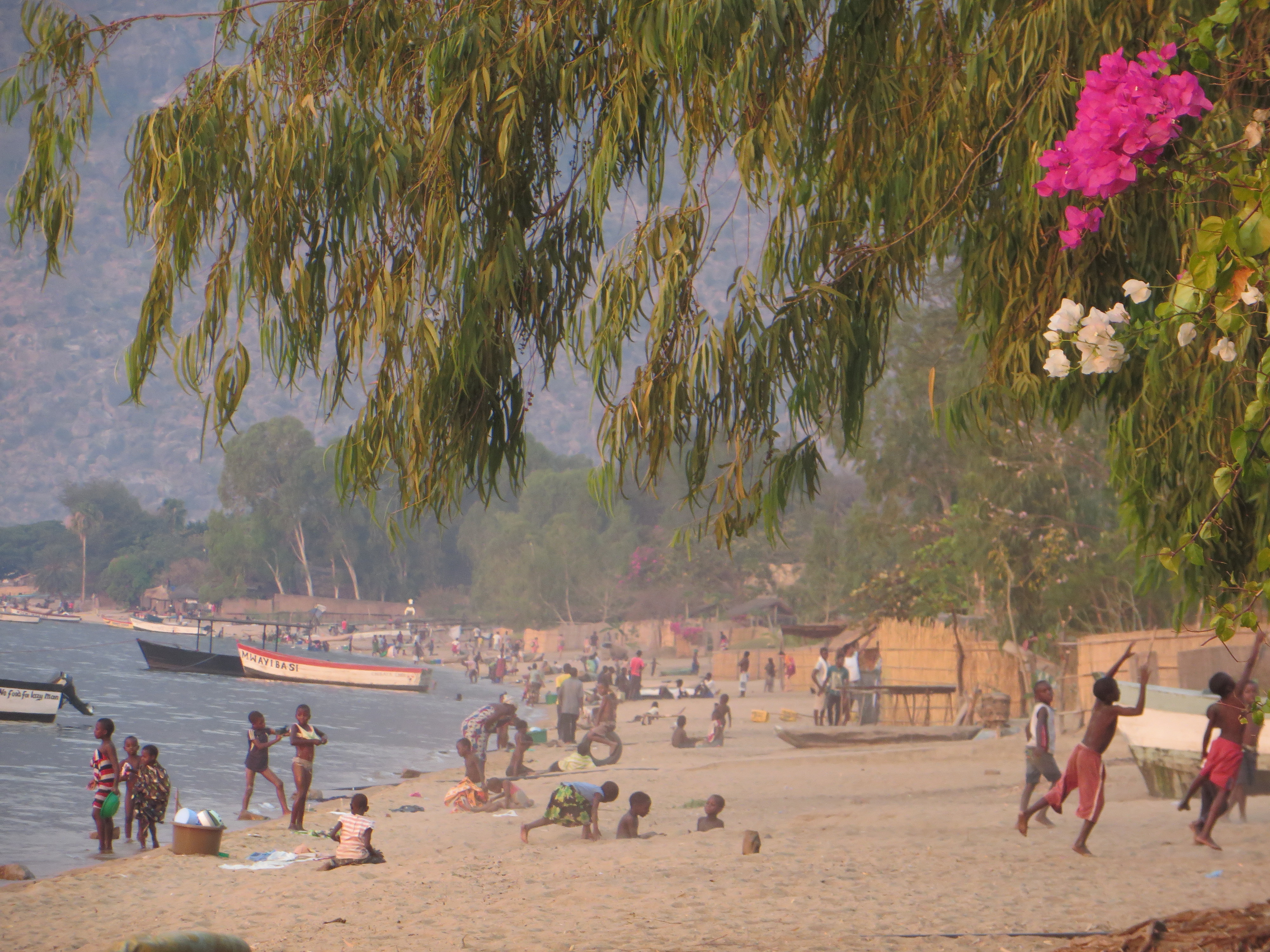
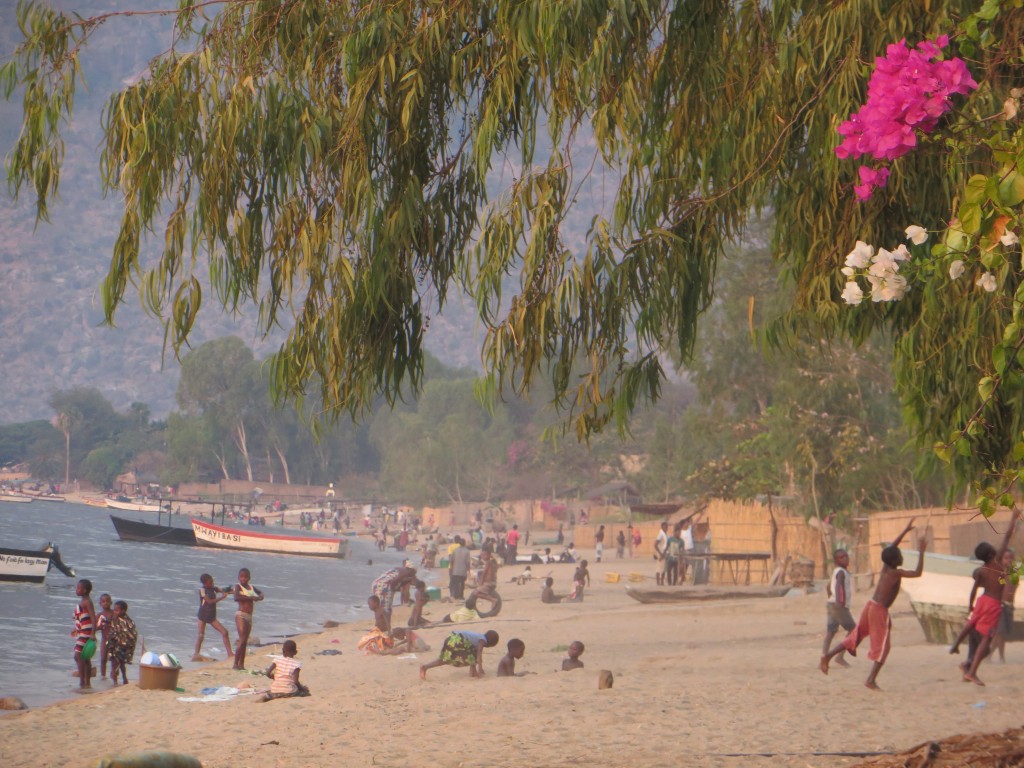
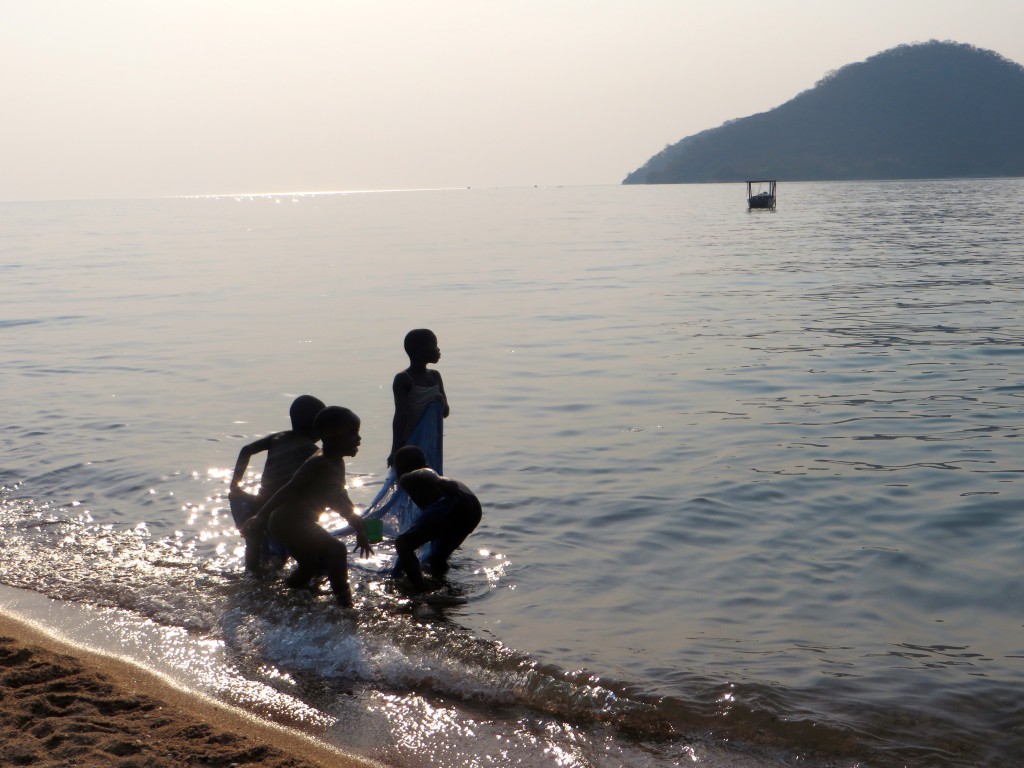
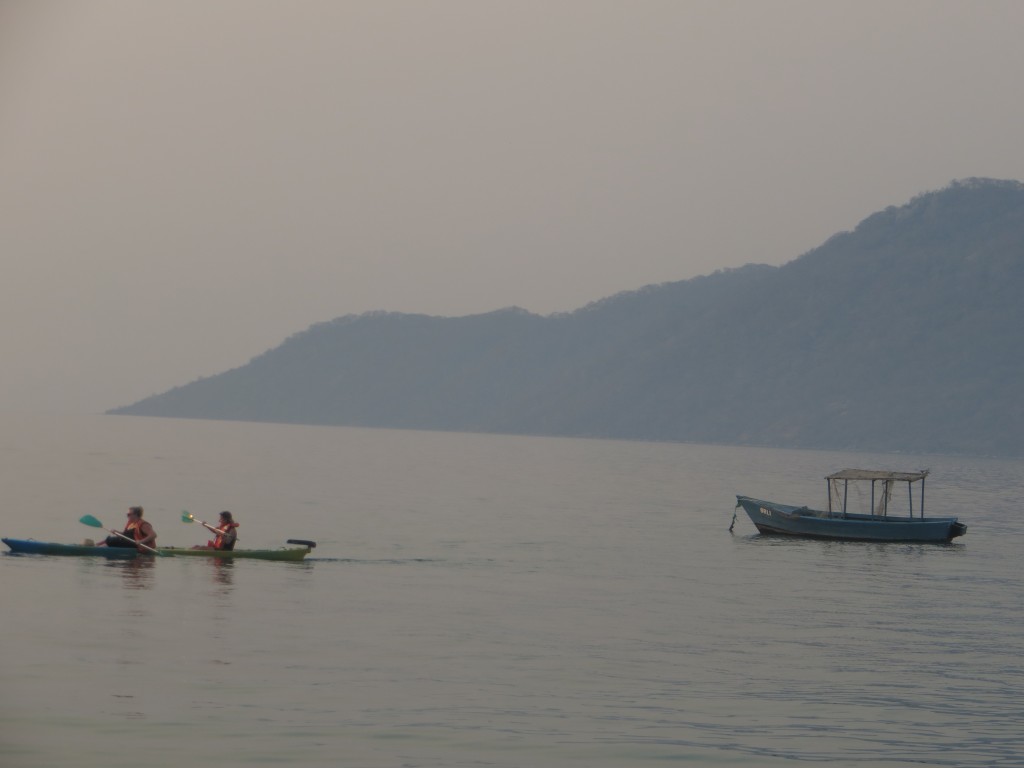
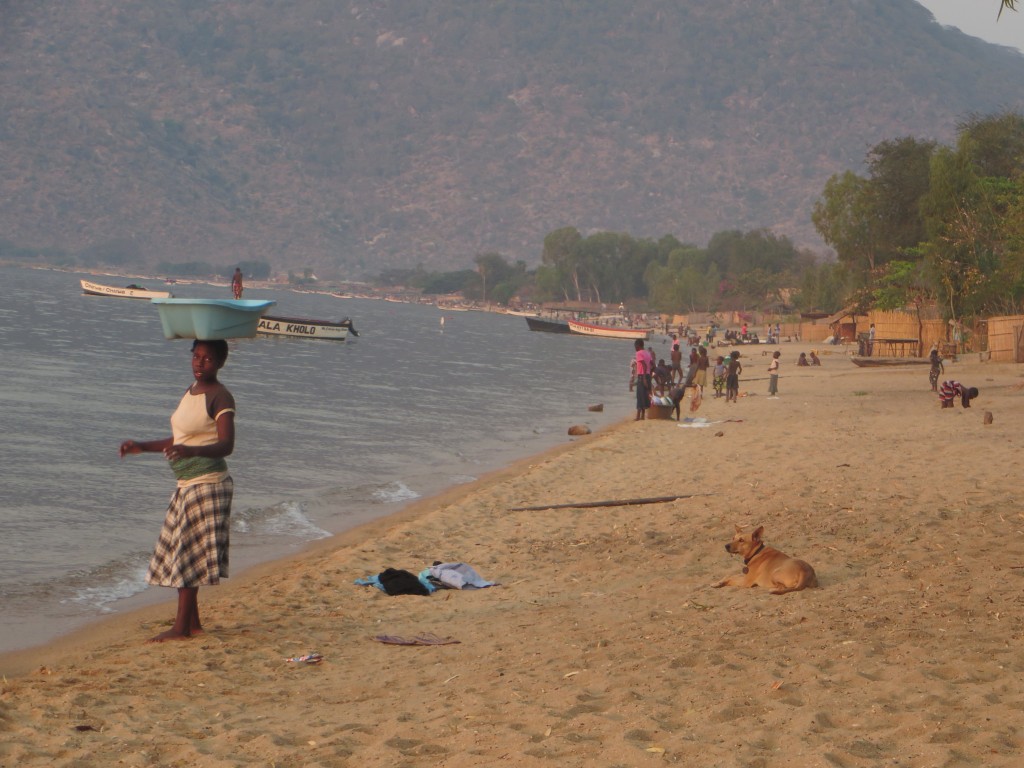
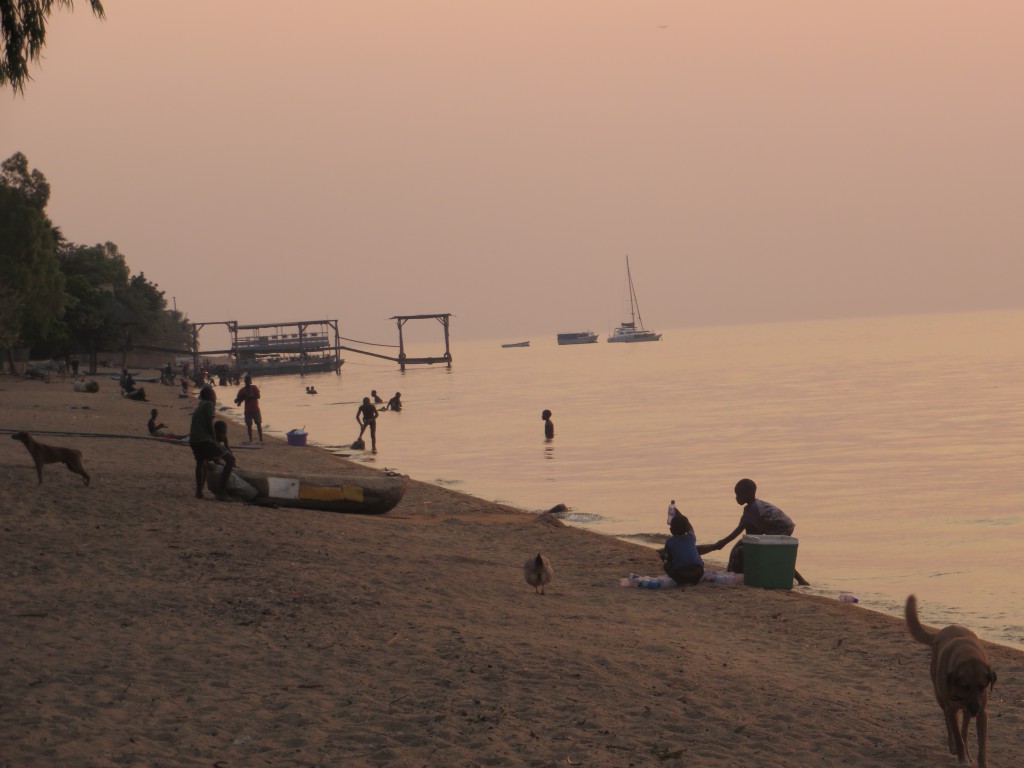








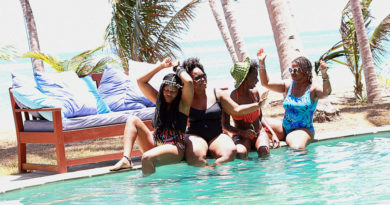
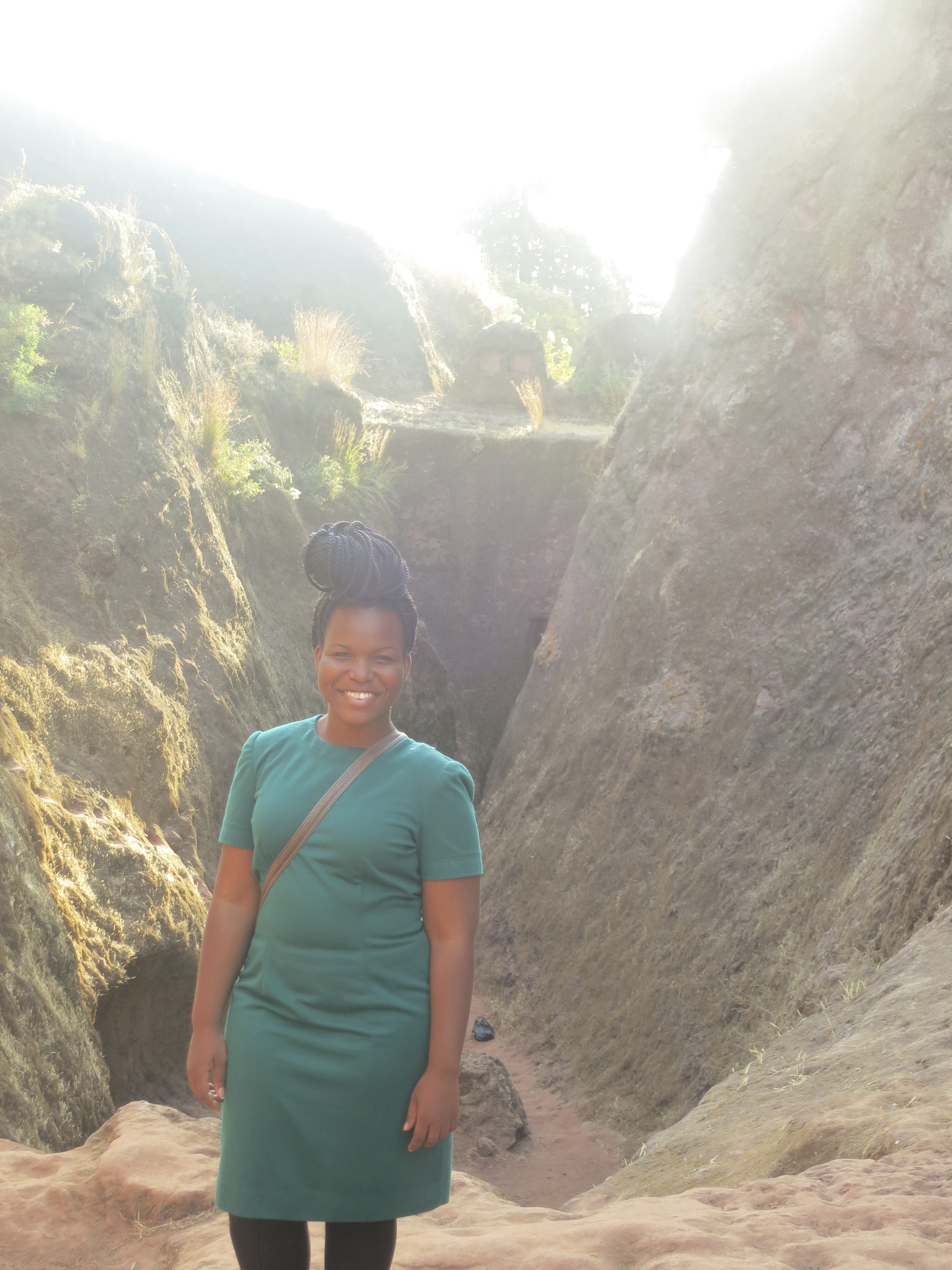

This just took me back to my home and native land, Trinidad and Tobago. Thanks for sharing your thoughts. I especially love that photo with the lady with the basin on her head at the beach.
Spectacular article Donna! I share your resentment for tourism and how it creates two versions of one country. If only the government can look behind the cash flow and think of their people FIRST.